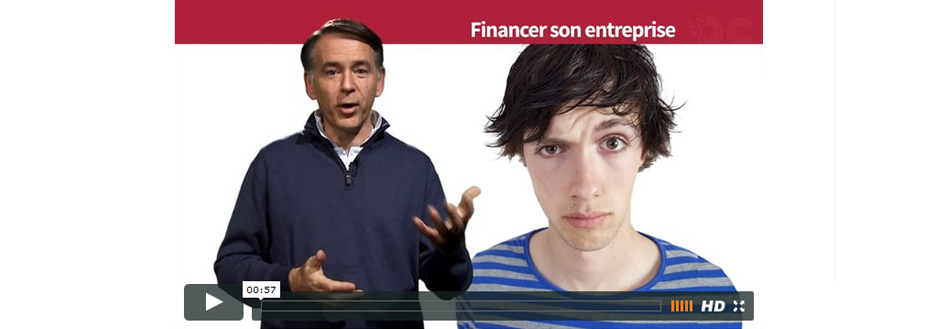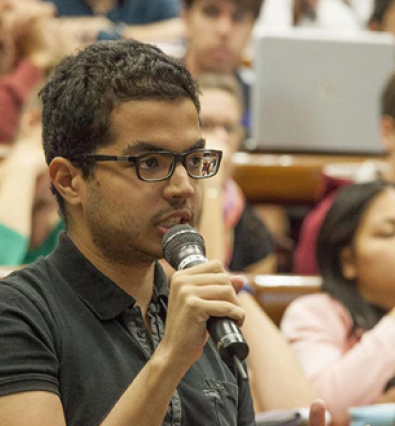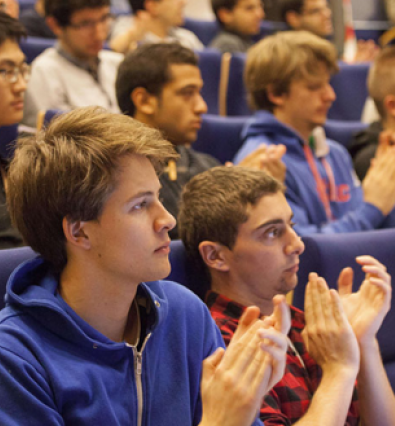In the era of MOOCs
From 2014, CentraleSupélec has been one of the first higher education institutions to be recognized for its teaching innovation. The school participates actively in the online education movement in France via a significant digital policy, and was among the first three French institutions to be selected to propose Massive Open Online Courses (MOOCs) on Coursera.
Coursera is the leading online training platform carrying MOOCs, having established partnerships with the largest universities and organizations in the world to provide online classes that are accessible to everyone.
In keeping with this, CentraleSupélec began in January 2014 offering following MOOCs: “Discrete Inference and Learning in Artificial Vision”, developed by Nikos Paragios and Pawan Kumar, and “An Introduction to Functional Analysis” by John Cagnol.
Today the school offers three MOOCs on Coursera and one on OpenClassrooms, and has recorded more than 313,000 class participants in less than three years across all of its online lesson offerings.
Making lessons freely available all over the world fulfills CentraleSupélec’s aim to give access to excellent quality training to everyone who has an Internet connection.
Focus on Build Your First Android App
What you’ll achieve
In this project-centered course*, you’ll design, build, and distribute your own unique application for the Android mobile platform. We’ll provide you with a set of customizable building blocks that you can assemble to create many different types of apps, and that will help you become familiar with many important specificities of Android development. When you complete the project, in addition to having a personalized app that you can use and share, you’ll have the skills and background you need to move on to more advanced coursework in Android development.
What you’ll need to get started
This project-centered course is designed for learners who have some prior experience programming in Java, such as an introductory college course or Coursera’s Java Programming Specialization (https://www.coursera.org/specializations/java-programming). You will need a computer with a stable Internet connection, but you will not need an Android phone - we’ll use free software that you can use to emulate a phone on your computer. We'll use Android Studio as IDE; it is compatible with most computer and operating systems.
You can find detailed system requirements here
*About Project-Centered Courses: Project-centered courses are designed to help you complete a personally meaningful realworld project, with your instructor and a community of learners with similar goals providing guidance and suggestions along the way. By actively applying new concepts as you learn, you’ll master the course content more efficiently; you’ll also get a head start on using the skills you gain to make positive changes in your life and career. When you complete the course, you’ll have a finished project that you’ll be proud to use and share.
Build Your First Android App (Project-Centered Course)
Dr. Virginie Galtier, Associate Professor, Computer Science
Michel Lanotto, Associate Professor, Computer Science
Time: 10 hours of study, 10 hours of active project work

Focus On Strategy: What Managers Can Learn from Philosophy - PART 1
About this course
In the expression “creative thinking”, the key word is not creative; the key word is thinking. With the help of great philosophers, you will rediscover the art of thinking.
To help leaders to be rigorous even without figures, great philosophers have lots of ideas. Managers are invited to rediscover the art of thinking. They should understand the role of mental models, realize the importance of cognitive bias, agree on clear definitions and efficient criteria etc.
Creativity demands the ability to free ourselves from conventional ways of thinking, to "think outside the box". But we need to go a step further. Once outside the box, we need to construct a new box or boxes (that is, new intellectual frameworks or models) to help us structure our thinking. Only once we have done so can we generate truly game-changing ideas.
Luc de Brabandere, professor at CentraleSupélec

Focus sur :Two Speed IT: How Companies Can Surf the Digital Wave, a BCG Perspective
Transform or disappear, the Darwinism of IT: In order to adapt to a digital world, a two-speed IT is needed. Despite the importance of IT in today’s digital world, Chief Information Officers (CIOs) often struggle to get their voices heard by executive committees. Faced with this challenge, IT departments are being forced to reinvent themselves to adapt their companies to the fast paced evolution of technology. The Boston Consulting Group has developed a business approach that allows IT to shed off its appearance of a heavy cost center and to adopt a new, more realistic persona as a quality service provider, partnering with users and the management.
Whether you are a professional, a student in engineering, a student in a business school or just interested in digital transformation and its implications on IT, learn with three BCG experts why and how to manage an IT department as a business in order to transform a company and adapt it to a digital world.
Two Speed IT: How Companies Can Surf the Digital Wave, a BCG Perspective
Antoine Gourévitch, Senior Partner and Managing Director at The Boston Consulting Group
Vanessa Lyon, Partner and Managing Director at The Boston Consulting Group
Eric Baudson, Managing Director at The Boston Consulting Group

Focus on Financing Your Company
It’s no secret: every company needs money to function. However, when you are preparing to launch your own company, what are the concrete steps to follow? When you want to raise funds from business angels or venture capitalists, how do you go about it? Are you even sure you want to work with business angels or venture capitalists? And what is their motivation for providing capital?
This class presents fundraising processes and the nature of relationships forged with business angels and venture capitalists.
Fee-based classes

Focus on Sustainable Development
The aim of this class is for participants to address the technical, economic, social and environmental issues of the 21st century. These issues, by their nature, are strongly interactive and complex and require an interdisciplinary approach to adopt a global exploration, going beyond prejudices and received ideas. This is why specialists renowned in the fields of economics, demographics, energy, climate, water and agriculture, from the most prestigious institutions and research centers of France (CentraleSupélec, INED, Cnam, CEA, AgroParisTech), enthusiastically speak to students to explore different points of view and debate issues. The general approach adopted for this class consists of examining sustainable development issues pertaining to rigorous and recent scientific studies, in order to:
- provide and discuss key figures (from an assessment of the current situation to exploring possible future scenarios),
- help students understand how these figures are established (hypotheses and limits of the underlying scientific models),
- together address the issues in their various dimensions (particularly from a local to a worldwide scale).





